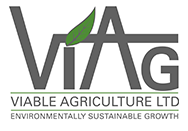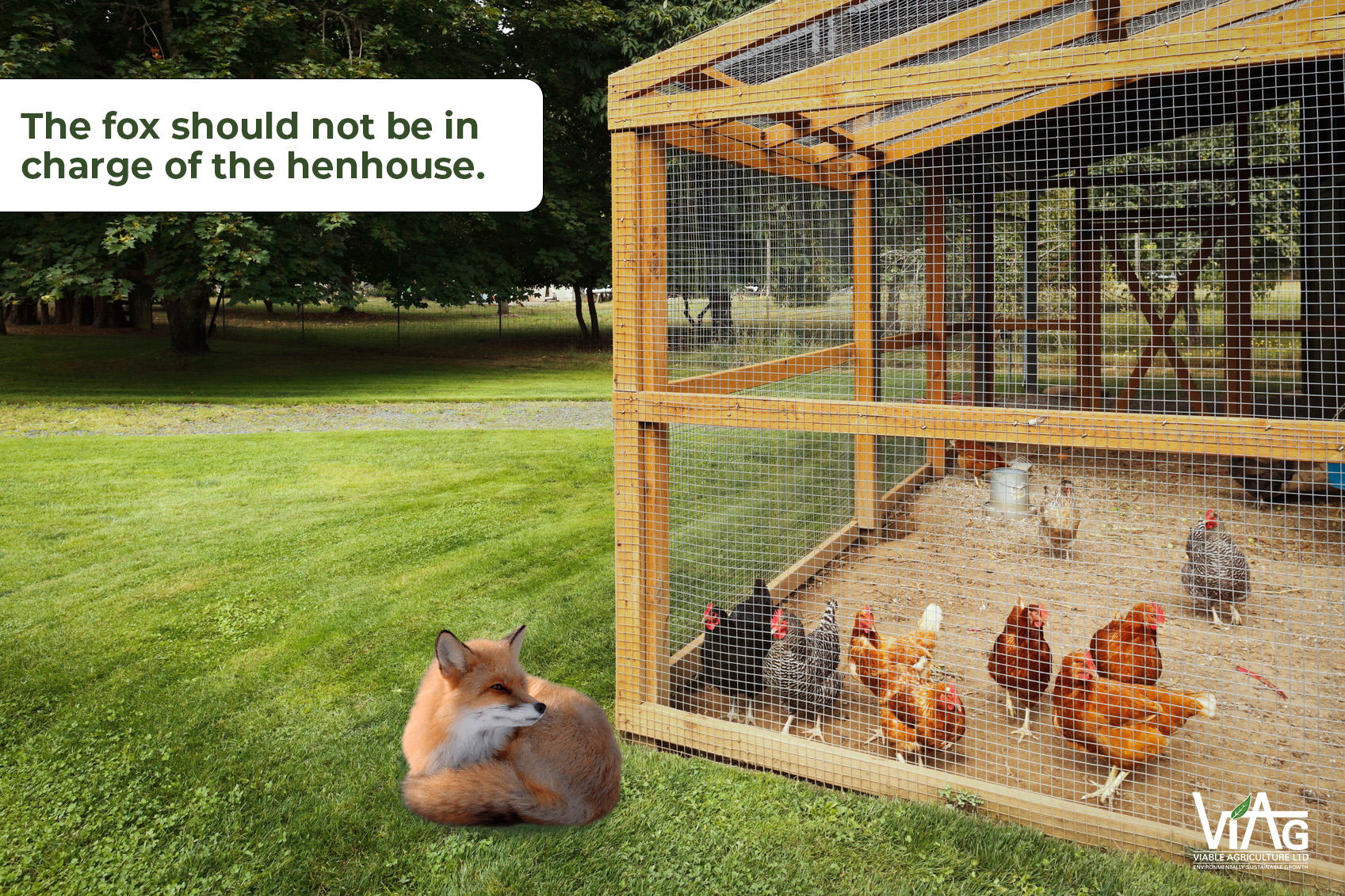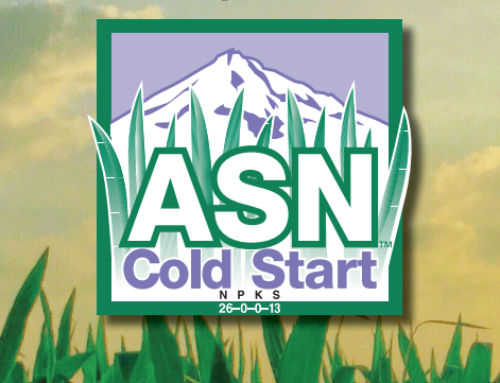The fox should not be in charge of the henhouse.
In an open letter to New Zealand agriculture Ian Ferguson shares his frustration about what he describes as a looming “nuclear moment” for New Zealand’s “green economy”.
Ian pulls no punches, challenging the politicians’ narrative and chillingly says New Zealand has invested in the wrong science, which has led to the wrong outcomes. It’s a compellingly cautionary tale.
Having lost the majority vote, he says if New Zealand agriculture – the backbone of this economy – continues to roll over, it will be fully exposed to political and economic disruptions.
He calls for inspirational leadership – with no political agenda – to champion New Zealand agriculture and future-proof the industry.
*Ian Ferguson DipAg. BSc MRAC – is the South Island Territory Manager for Viable Agriculture Limited. His thoughts get pretty specific and technical, but it’s worth sticking with it. If you value your future in agriculture, don’t scroll past without taking a look.
Subject: Farming, Fertiliser, Fuel, Food and Fighting – open letter to NZ agriculture
Dear Mr Farmer,
I have been struggling for some time to understand what is happening to water quality, nutrient management, and New Zealand agriculture. I try to be informed and stay abreast of current affairs, but farming has had increasingly more bad press recently and I would like to know why exactly?
Once applauded as the backbone of the New Zealand economy to becoming a “sunset industry” (in the words of Helen Clark). During the pandemic, farming was officially deemed an essential industry. Subsequently it transpires farmers are responsible for almost 50% of our GHG emissions, global warming is causing a new disaster every day, and dairying is destroying the environment. Really?
Why is it that municipal waste streams never seem to get the same headlines? Why do we never see media discussion of food production or carbon capture by photosynthesis? Is pasture production no longer a valid method of biological C sequestration? Afterall, New Zealand is wholly dependent on primary production for economic survival.
THE DEEPER QUESTION
Where is the real leadership and the inspiration that will get us to the net zero paradise without going bust? Under current policy settings, I do not think that NZ science is up to the task, and here’s why:
1. Last week Rural News quoted Agriculture Minister Damian O’Connor saying the “Government is allocating close to $339 million to accelerate the development of high-impact technologies and practices to reduce agricultural greenhouse gas emissions, including the establishment of a new Centre for Climate Action on Agricultural Emissions…”
a. I am curious. Will this money be given to the same incumbents in the science community who have already given us the Overseer (unfit for purpose) software model? Or, could some of it go to the people who are investigating the need to reduce cow numbers and facilitate the change of land use that is currently being funded under the umbrella of “Our Land and Water National Science Challenge?”
The intro on the OLW website smells of a pre-determined agenda and limited science.
2. “Enhancing New Zealand’s primary sector production and productivity while maintaining or improving land and water quality is our aim. The vision for Our Land and Water is that New Zealand is world-renowned for integrated and successful land based primary production systems, supported by healthy land and water…”
a. New Zealand is already “world renowned” and so I am left wondering if any of the public policy gurus actually understand the nutrient dynamics of the soils that produce the food we export which gives them the standard of living they currently enjoy? I don’t think so, and if they don’t understand the problem, I expect that giving them another $339 million is ludicrous.
3. “There is also very real potential for water quality limits to impact primary production across the country so we’re using science and data to determine what best land uses are most suitable and sustainable in a variety of different environments…”
a. Is this the same science and data that gave us Overseer? Is it threat of water restrictions? What about hydroelectricity – green energy?
And it goes on –
4. “Our Challenge is trying to answer the difficult questions from producers and industry such as: how much can I reduce my environmental footprint and still be profitable? If this footprint is still too much, then what other land uses can I change to and where in the landscape is this most profitable and most sustainable? These questions need to be answered quickly…”
a. Are they suggesting that Overseer can answer these questions quickly? The real question is why is this a challenge when there is already plenty of the right science and data for enhancing primary sector production? If OLW must now investigate land use change, is it simply because there’s more funding available? Or, is it another political edict driven by the Mike Joy fraternity?
WRONG SCIENCE BRINGS THE WRONG OUTCOMES
Based on past performance, more funding directed at the wrong science will lead to the wrong outcomes.
Most likely the launch of yet another version of Overseer which includes mandatory reporting of soil carbon and GHG along with N mineralisation. This will lead to perverse outcomes and inevitably put more distance between agriculture, science, politicians, and the voting public.
The net result of losing the attention of any part of the target audience is readily apparent when talking to farmers or their urban cousins about sustainability and water quality. But the real shame is the sustainability objectives that NZ needs are going to become even less attainable. see: Fast-tracking farm emissions science (ruralnewsgroup.co.nz)
I believe that the necessary science which is already proven to “enhance New Zealand’s primary sector production” has been overlooked, and simply not implemented at scale.
This science shows how to grow clover and fix nitrogen. (see Fertiliser Review #46). This is biological nitrogen fixation AND carbon sequestration. Maybe this a simple communication problem? Should we not be growing more clover? These are the real “questions that need to be answered quickly” by our Agriculture Minister.
HATCHET JOB
Coincidentally another paper by Mike Joy et.al. was published last week: The grey water footprint of milk due to nitrate leaching from dairy farms in Canterbury, New Zealand: Australasian Journal of Environmental Management: Vol 0, No 0 (tandfonline.com)
This is a real hatchet job on dairy farming designed to garner media exposure and attract public funding for his own political crusade.
It completely overlooks the long-term effects of grazed pasture on soils and the direct improvements in water quality derived from efficient nutrient management and increasing soil carbon. Grandstanding on this issue by the likes of Mr Joy will ultimately distance the audience even more.
The old cliché that “Our soils are our most valuable asset” remains a truism that is just as important as it ever was. And farmers must be encouraged to continue to look after their soils, more so now than ever before.
The use of proven nutrient management science is critically important in the prevailing economic conditions with ever higher fuel and fertiliser prices due to the supply and demand imbalance caused by pandemic and war. Confounding this issue by political posturing is extremely alarmist and counterproductive when farmers simply need to do the fundamentals well, control the controllable and keep farming.
Now is the time to be using the good science which is already proven in agriculture. This is the only workable strategy for farmers. Make a start now with two simple steps-
1) Get a proper soil test done by an experienced practitioner
2) Follow the advice given by that experienced person
SCIENCE, POLITICS, AND AGRICULTURAL REALITY AT ODDS
This is where the science, the politics, and agricultural reality start to diverge.
There are many challenges in agriculture and food production, including the delivery of genuinely useful science and extension.
The current situation with global fertiliser supply is unprecedented and environmental compliance issues are distracting the New Zealand science spend away from improving efficiencies in production agriculture.
This clouds the real issues of farm cost inflation, and makes the whole discussion of sustainability unnecessarily political, protracted, and less productive.
Farmers are now to be threatened with the instigation of more top-down regulation which is known to be inherently less effective at promoting the right kind of change. Worse though, is that there will be perverse outcomes for the environment with unintended consequences.
I can guarantee that form-filling, box ticking, and riparian planting will not remedy the sustainability issues facing farming in Canterbury or NZ, even though the form-filling may be done by a person deemed to be a Certified Nutrient Management Adviser.
Right now – as never before – the whole of the ag servicing industry has a moral obligation to provide the best service possible for farmers. The integrity of the service delivery is critical.
SCIENCE AND EXTENSION VERSUS COMMERCIAL IMPERATIVES
The truth is that science and extension in agriculture is conflicted by commercial imperatives, and is simply not able to withstand genuine scrutiny.
This is because real integrity requires moral discretion and analytical thinking – based on common values – rather than financial returns alone. Neither is readily apparent in the current discussion of agricultural sustainability in NZ. Our science is conflicted by competitive funding.
Three Waters, Te mana O te Wai, and He Waka Eke Noa are recent examples of unworkable and unwieldly political constructs. Why should a farmer in Canterbury be funding new sewer pipes in Wellington?
Marketing of the “Know your number” concept is another political distortion in the sustainability discussion, which has largely lost the attention of most of its farmer audience because it is seen by farmers for what it is – a political construct driven by politicians pandering to urban votes.
How can there be integrity when the politicians are advised by a science community that is beholden to the need to secure ongoing funding from providers with a political agenda, rather than any genuine intention to help farmers become more efficient and sustainable?
The underlying theme for a portion of the OLW science funding is that they must now facilitate land use change to improve environmental outcomes. That whole idea is utter nonsense, has no credibility, and no integrity whatsoever.
FARMERS CAN NOT AFFORD TO LEAVE THE FOX IN CHARGE OF THE HENHOUSE ANY LONGER
Briefly, the fundamental rationale is as follows:
1. Well managed soils are acting as water filters, pH controls soil biology, and the biology (animals, plants, fungi & bacteria, etc.) control the nutrients. Every soil type has its own unique characteristics, but in general, grazed pasture will build organic matter, and this will build soil quality, soil fertility, and productivity. Root mass and root depth is increased, Nutrient Use Efficiency (NUE) and Water Use efficiency (WUE) will be improved, yield will go up, and agricultural GHG emissions will be reduced. This is not new science, nor is it Regenerative Agriculture, this is the KNOWN SCIENCE. Increasing soil organic matter will capture carbon and other GHG, but it must be well managed to best suit the farm system, climate, and soil type. This is the science and extension that will make real improvements by using the proven fundamentals such as maintaining optimum pH and nutrient levels. The main point is that it is now time that we are all doing all the joined-up things to shift the dial in the right direction.
2. This means that farmers need to have a nutrient management system that uses the 4R’s see: https://nutrientstewardship.org/4rs/ is driven by farmers from the ground up. A system that promotes NUE and WUE by identifying deficiencies and correcting them. A system that separates fertiliser companies from environmental compliance and political regulations, and a system that separates applied agricultural science from politically sourced and commercially motivated funding.
3. Given that Overseer has been deemed to be unfit for purpose, (see Expert Review) there is a real need for measuring nutrients from the root zone all the way down to the aquifer. This will show direct cause and effect in nutrient dynamics and enable the calibration of the model with ACTUAL DATA. Science could help with this too, see: Sensoils link below.
4. The real danger in Canterbury now, is that water quality may very well continue to decline and despite current best efforts, the 190 N cap will lead to an increase of clover N in the soil. This will make a bad situation worse, especially if it is not well managed. Actual physical real time monitoring of soil nitrate is now possible, however (go figure) OLW have declined to fund this technology and deprived farmers of the information needed to give the required improvements in water quality. https://sensoils.com/agricultural-soil-monitoring/
5. Yield is key in all of this because NUE and WUE are opposite sides of the same coin. The only true measure of NUE and WUE is yield. So, by any measure of improving sustainability, yield must increase. This perspective on NUE, WUE, sustainability and yield, is held by very few people in agriculture, science, or politics in NZ, or anywhere else as far as I am aware. Even now the average yields of crops and pastures is still about half of their potential because of the limitations caused by a lack of water and/or nutrient and other management factors such as sowing date, seeding rate etc. This is referred to as the Yield Gap. A little applied science could help with this too, and this is where attention must be focussed to feed the population sustainably and improve New Zealand’s environmental credentials.
6. In my experience it is impossible to correct a copper deficiency by adding more urea, but this is what is happening Canterbury now, simply because it is not being recognised or acknowledged by farmers or their advisors. Applied science could help with this too.
7. To enable meaningful improvements in sustainability, agriculture must have good people with the right motivation to do this work proficiently and the farmers who really do want to produce food in the most sustainable way possible. Best Management Practice will be defined by successful integration of all the appropriate technology, not just some of it.
8. The bottom line is that agriculture must have the best possible information on nutrient management to be able to do this. And this information must be utilised to inform robust decisions unfettered by politics. Farmers must lead this themselves or face the prospect of increasing regulation from the top down.
9. It is my firm belief that it will be necessary to have to include soil testing, tissue testing and constant real-time calibration with well-informed interpretation. But this must be done to a standard far above what is currently being used. Software models are not able to do this, but field experience can. Science and extension may also help, but only if the politics does not destroy the credibility and integrity of the science.
10. Given the current direction of travel, farming will be left with no choice other than to make full use of fertiliser strategies such as the 4R’s nutrient management. See https://nutrientstewardship.org/4rs/
SUMMARY
The lessons of the pandemic and war in Ukraine make it obvious – the world needs fuel, fertiliser, and food, but most of all – the world needs farmers.
Could genuine science help with this? Because politics sure has messed it up so far.
This really is New Zealand’s nuclear moment for our green economy.
My own perspective on integrity in agriculture and science is formed by many years of field experience, based entirely on reality and a large dose of background reading to stay on top of current developments in science, climate change and sustainability. This obviously includes nutrient management and water quality, which are all directly related to animal health and GHG emissions. Below is a selection of relevant publications and other info that I think are likely to be helpful, and I hope that they are of interest for you.
References https://www.ruralnewsgroup.co.nz/rural-news/rural-general-news/partnership-to-reduce-ag-emissions Damian O’Connor Budget Announcement May 2022 https://www.agresearch.co.nz/about/our-land-and-water/
The grey water footprint of milk due to nitrate leaching from dairy farms in Canterbury, New Zealand: Australasian Journal of Environmental Management: Vol 0, No 0 (tandfonline.com) nzgrassland_publication_2295.pdf Evaluating the Agronomic Effectiveness of Fertiliser Products 0215622 Agknowledge_Fertiliser Review Edition 46
Soil bacterial and fungal communities across a pH gradient in an arable soil https://pubmed.ncbi.nlm.nih.gov/20445636/ Hoosefield pH gradient, Rothamstead. https://www.pce.parliament.nz/our-work/news-insights/media-release-findings-of-overseer-water-quality-model-review-devastating. Expert Review of Overseer View of Size of the prize: the value of closing pasture yield gaps on heterogeneous soil types in a dairy farm in Canterbury, New Zealand (nzgajournal.org.nz) https://sensoils.com/agricultural-soil-monitoring/ Vadose Monitoring System from Israel for tracking nutrient dynamics in the unsaturated layers. https://wintexagro.com/video/ Automated Soil Sampling Machine from Denmark. Could also run NVDI, NIR, IR and GPS to be fully autonomous.


